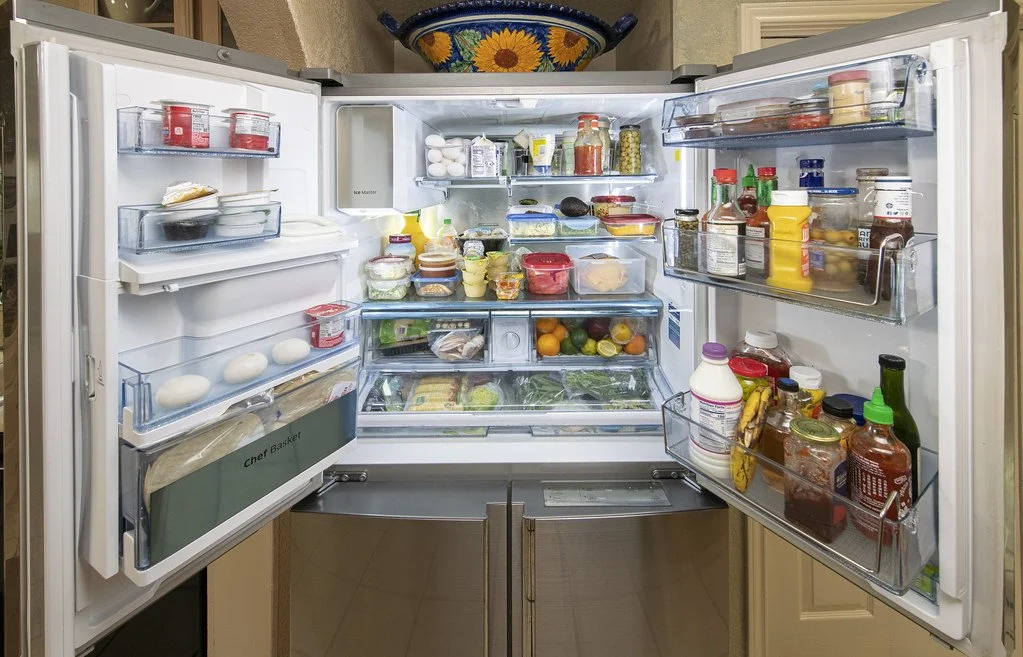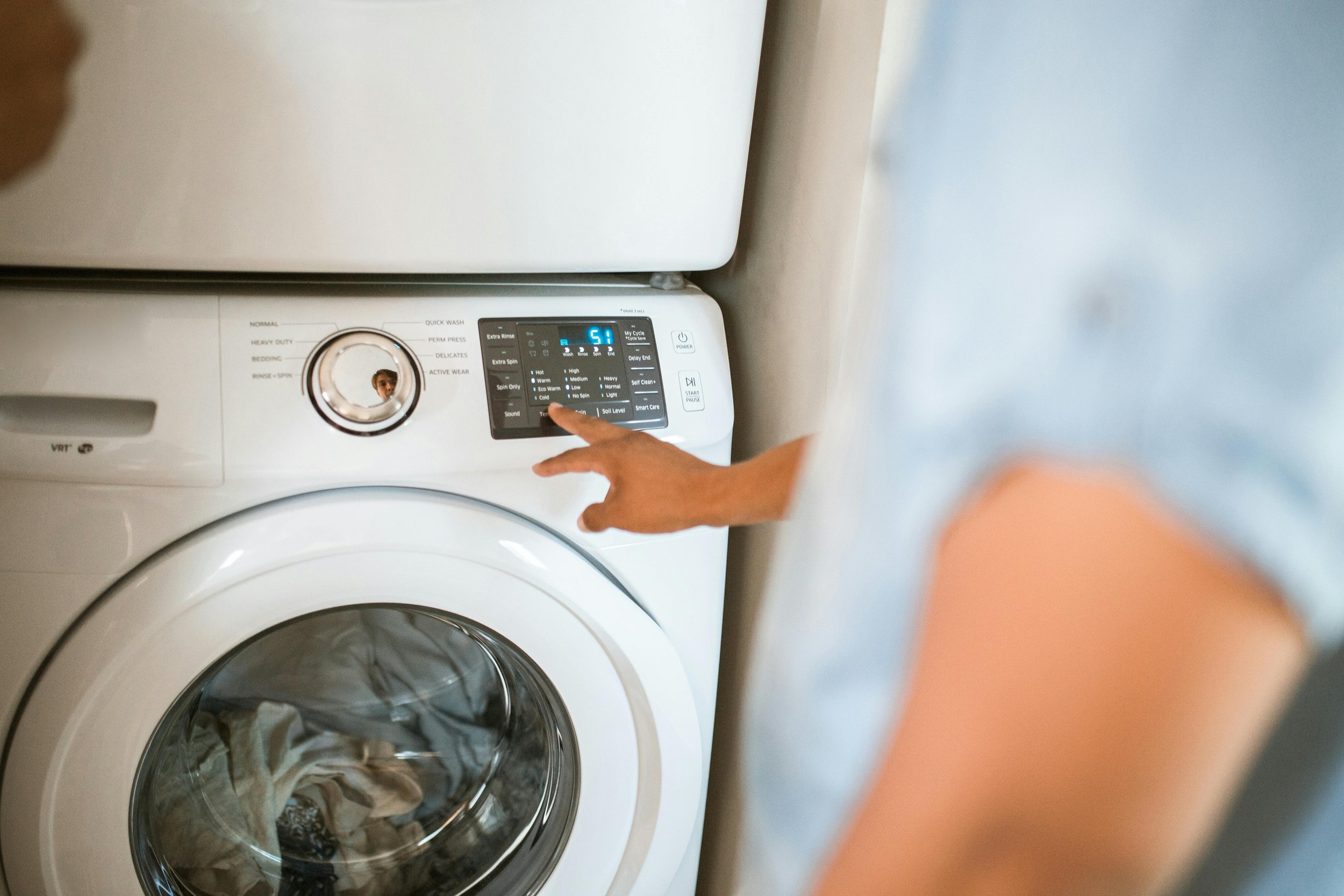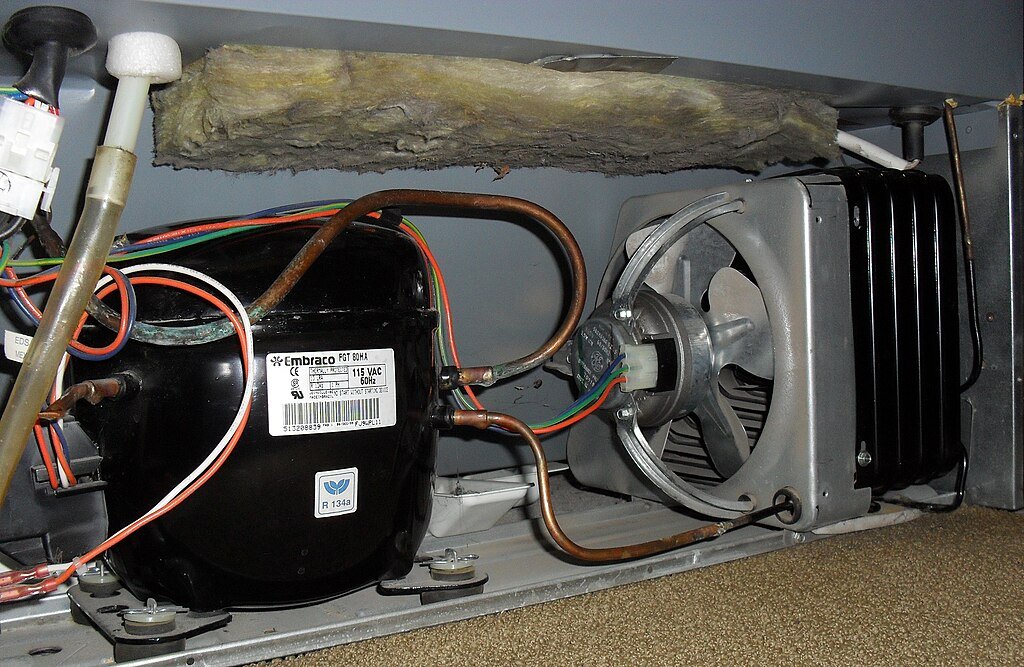From fridges to dryers, here’s how to know when replacement is worth it.
When one tenant moves out and another is about to move in, most landlords go through the usual turnover checklist—fresh paint, deep cleaning, maybe new flooring. But what about the appliances? The major appliances are a major part of how tenants will experience their home on the day to day. Refrigerators, ovens, dishwashers, washers, and dryers are more than just conveniences they are the work horses of a home. The question of whether to repair or replace them isn’t always simple or straight forward. Factors like age, condition, energy efficiency, and tenant expectations all play a role, and some may weigh more heavily at different times. Here’s a room-by-room look at when it makes sense to invest in replacements and when repairs may be enough.
Refrigerator
We’ll start in the kitchen, with arguably the most essential appliance in any home, the refrigerator. Most refrigerators last between 10-12 years these days, but issues will show up sooner. Frequent breakages, odd noises and inconsistent cooling are all examples of warning signs. An unreliable refrigerator isn’t just an inconvenience to your tenants, it can lead to spoiled food and possible illness.
If your current refrigerator is pushing a decade, it’s a good time to start saving up. While a good repairman can surprise you, miracles aren’t in our repertoire. If something is well and truly dead, repair isn’t always an option. Modern models also offer energy savings that your tenants will appreciate, especially if they’re paying the electric bill. A sleek updated fridge also makes the space instantly more appealing to prospective renters.
Tip: if you don’t replace all of the appliances, make sure that the refrigerator matches the finish of all of the other appliances in the kitchen. When in doubt, this can be achieved by using contact paper, as we covered last week. Mismatched appliances make the kitchen feel disjointed and piecemeal.
Oven and Stove
Like refrigerators, ovens, and stoves will typically last you about 10 to 15 years. The good news is that burners and heating elements can often be replaced, as can many electronic components. However, consistent problems and failing controls are warning signs that you’ll need a replacement sooner rather than later.
If your range is still functional, consider whether it benefits you to upgrade it at this point. While an electric stove will quickly show its age based on the features it has, a gas stove that’s well maintained is harder to tell. So, you might not need to yet. On the other hand, an energy-efficient model cuts down on utility costs, and a brand new range can make the entire kitchen feel fresh and exciting with new features, often justifying a slightly higher rent.
Tip: Gas stoves are often seen as a premium feature, but electric models tend to be easier and cheaper to maintain in rental settings. Choose based on your tenant demographic and property type.
Dishwasher
Dishwashers will typically last between 8 & 10 years, which is shorter than other major appliances, due to how hard they work. Over time they can start to leak, make noise and smell making which are signs a repair is needed, and possibly a replacement. .
While a broken dishwasher may not seem like an urgent repair, it’s definitely one you’d want to either replace or repair before new tenants move in. In a competitive market like Dallas, Frisco and McKinney, many tenants view it as a must-have. Offering a reliable, modern suite of appliances in the kitchen, including the dishwasher, can make your property stand out. And because new dishwashers are more water- and energy-efficient, replacing an aging one saves everyone in the long run.
Tip: Consider mid-range models with stainless steel interiors—they’re durable, quieter, and more appealing to prospective tenants.
Washer
A top-loading washer typically lasts about 10 years, while a front-loading one can last up to 12. Signs it may be time for replacement include leaks, excessive shaking, banging, and difficulty draining. In a rental, where machines see heavy and sometimes rough use, washers may wear out faster.
Offering an in-unit washer is a big selling point for tenants, especially younger renters or families who value convenience. If your washer is more than a decade old, replacing it before a new tenant moves in can prevent future complaints and add appeal to your listing.
Tip:Top load washers are often cheaper, but they aren’t as appealing, and can be a hassle for accessibility. Make sure to consider your demographic when looking at a new one.
Dryer
Dryers generally last 10 to 13 years. While they’re fairly simple machines, problems like inefficient drying, overheating, or loud thumping noises can signal that it’s nearing the end of its life.
Replacing an unreliable dryer doesn’t just improve tenant satisfaction—it also reduces the risk of safety issues. Lint buildup in older dryers can be a fire hazard, making proactive replacement a smart investment.
Tip: Make sure dryer vents are cleaned between tenants. This simple step extends the life of the appliance and improves safety.
Replacing appliances between renters can feel like a big expense, but it’s often a smart, long-term investment. Updated, efficient appliances not only reduce repair calls but also help attract and retain quality tenants who are willing to stay longer and pay a little more for modern conveniences.
If you’re unsure whether to repair or replace, consider the age of the appliance, how often it’s been serviced, and whether it’s meeting today’s efficiency standards. In many cases, replacing an outdated model before it becomes a problem saves money and stress down the line.
And if you ever run into trouble with your refrigerator, oven, dishwasher, washer, or dryer, you don’t have to tackle it alone. Appliance Rescue Service is here to help keep your home running smoothly. Call us for an appointment whenever you need a maintenance run, or a repair.
Call: (214) 599-0055







